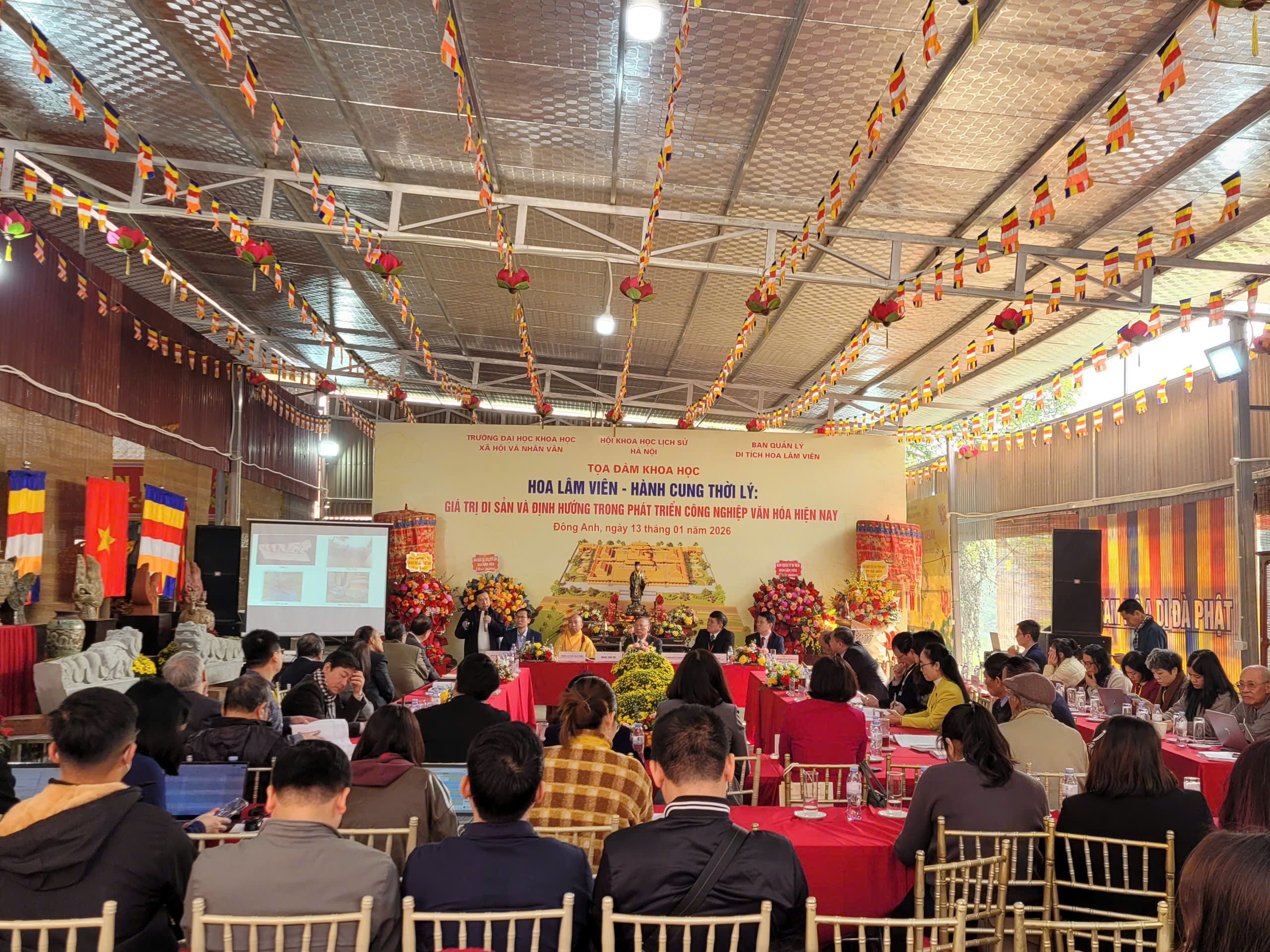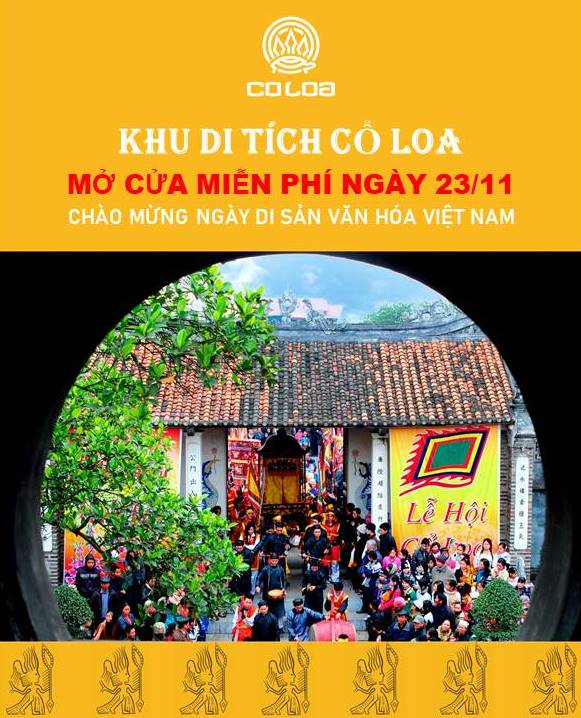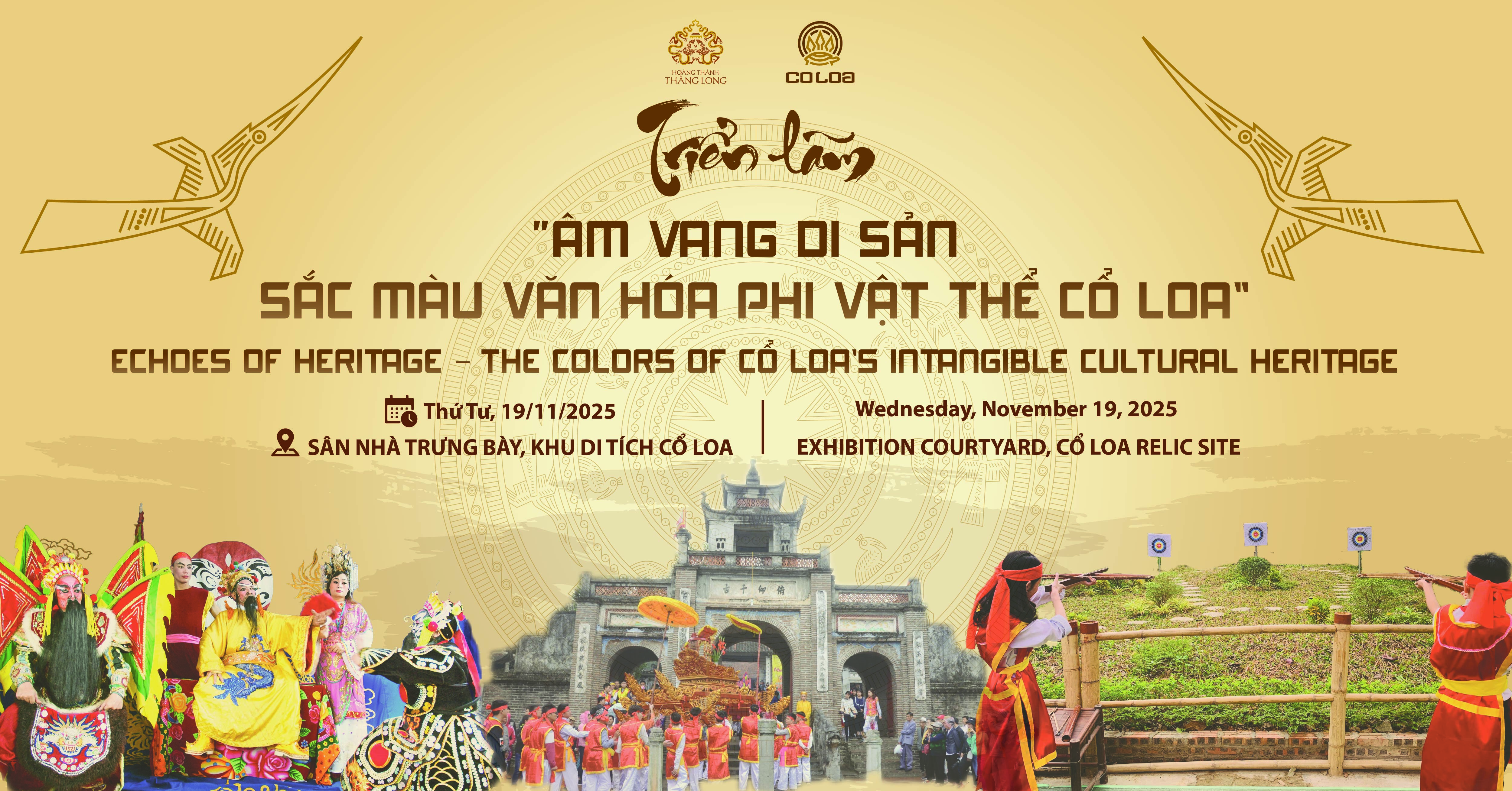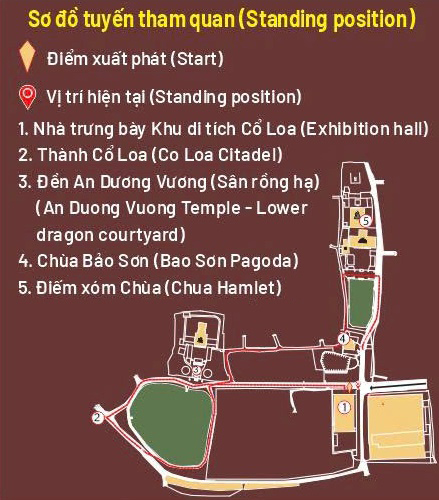Đài Bi is a village of "Bát xã hộ nhi" or also known as “Bát xã Loa Thành” (Eight communes of Cổ Loa Citadel), an ancient land imbued with many legendary histories about the period of building the country of King An Dương. Đài Bi village is an area adjacent to the Cổ Loa area, as well as other villages in the “Bát xã Loa Thành” all worship the tutelary god Thục Phán King An Dương. Based on the book of legends and artifacts in the relics, Đài Bi communal house worships King An Dương and Princess Mỵ Châu as village tutelary gods. Through feudal dynasties, King An Dương and Princess Mỵ Châu were both appointed as Superior Gods and awarded with many beautiful titles.
As a village in the " Bát xã Loa Thành ", Đài Bi is closely related to the main ceremony of the Eight communes at Thuợng Temple - Co Loa commune. The maintenance of these activities in Đài Bi village has been recorded for a long time. The arrangement of the altar to worship King An Dương and his daughter Princess Mỵ Châu at Đài Bi communal house is quite similar to that in Cổ Loa and other villages in “Bát xã” (Eight communes) such as Mạch Tràng, Thư Cưu, Cầu Cả...
To commemorate King An Dương's contributions to the country, every year on January 6, Đài Bi villagers participate in the festival in Cổ Loa commune along with the villages in the “Bát xã Loa thành”. According to the process of the “Bát xã Loa thành” festival, Đài Bi village was arranged to carry the 6th palanquin in the procession of eights communes to Thượng temple. Dai Bi's palanquin is placed on the western row of Thuong Temple. The villages of Đài Bi, Sằn Giã, and Thư Cưu were assigned to perform the tasks of "Phủng Chúc" (offering wine) and "Phủng Hương" (offering incense) in the King's offering ceremony. Đài Bi village's procession contributed to making the Cổ Loa festival more crowded and warm. The festival demonstrates the solidarity of the village community, attracting a large number of people to attend.
The officials at the ceremony
Other villages of “Bát xã”, after January 6, according to the scheduled time, continue to hold festivals at the village communal houses, until January 16. Đài Bi village holds a festival on January 9 to commemorate King An Dương - who had the merit of establishing Âu Lạc state from the beginning of of the national construction and defense. The Đài Bi festival fully represents the characteristics of village culture. The festival includes a procession (with Eight communes in Cổ Loa citadel), sacrifices, ceremonies and traditional folk games of the Northern Delta region.
Currently, the village's festival takes place at Đài Bi communal house. Every year, in the first days of December, Đài Bi villagers begin preparations for the festival. The preparation of decorative solemn banners, flags, and slogans creates a joyful atmosphere during the festival. On December 27, flags and slogans are displayed. In front of the village gate and inside the communal house is a large festival flag fluttering in the spring weather, the god flag and the national flag are hung on two poles in front of the communal house to welcome visitors from all over to the festival. In addition to the ceremony, the festival also includes folk games, so preparing facilities for the games is necessary. Đài Bi Village met and established a Festival Organizing Subcommittee headed by the Village Head, managing the subcommittees and assigning specific tasks to each member: The Elderly Association is the key and has the main responsibility in charge of the ritual. The Women's Union receives receives contributions, the youth group organizes folk games and welcomes guests.
The first preparatory job is to prepare human resources, including choosing people to be the celebrant, “quan đám” (communal house caretaker), the officials, the sacrifice assistants (bồi tế, bồi bái), and preparing the procession force; holding flags, fans, parasols, canopies, dancing flags...
“Phủng hương” (bring incense) ritual
Criteria for choosing a funeral director (i.e. the person responsible for making incense sticks at the communal house during the year): age 60 or older, healthy, alert, a person with a perfect family, obedient children, both boys and girls, has no deformities, is virtuous in all aspects, is respected by the villagers, and his family is free from funerals.
The selection of the celebrant and the officials - those in the sacrificial committee - must be chosen very carefully with many different criteria: age 50 years or older, healthy, free of deformities, a person with a perfect family, is virtuous in all aspects, is respected by the villagers, and his family is free from funerals.
Those who take on important responsibilities in the festival such as “bồi tế” “bồi bái” (the sacrifice assistants), “Đông xướng” “Tây xướng”, “Độc chúc” (oration reader), and “Thủ hiệu” not need strict standards like the Celebrant, but must also ensure standards such as: a perfect family, successful and harmonious children, respected by the villagers, healthy, bright-faced, free from illness, free from evils, and free from funerals. With two “thủ hiệu” (drum and gong beater), one must also be in good health to ensure correct drum and gong signals throughout the ceremony. These are the people who represent the people to sacrifice and serve the gods, so the selection must be very careful so that the whole village will be blessed by the gods.
At the Đài Bi village festival, not only men participate in the ceremony but also a female ceremony team. In Feudal times, women were not allowed to pass through the three-entrance gate of the communal house. The female team has only appeared about 10 years ago and only the male team can offer sacrifices at the communal house, while the female altar team can only offer incense to the Saints. At the communal house, the female team only stands on both sides to perform the ceremony (5 kneels, 3 bows) and after completing the ceremony at the communal house, they will offer incense at the pagoda. Choosing the members of the female ceremony team is equally important. Those selected for the female ceremony team must be 50 years old or older: in good health, in a harmonious family, with successful children, and a happy life. These are exemplary women, responsible, good at housework and actively participating in social work.
In addition, in the festival there are also people participating in the palanquin procession, the flag dancing team (red shirts with tied belts), the “sinh tiền” dance and a significant number participating in holding flags, fans, parasols, canopies, and “bát bửu” (eight treasures)...Therefore, the selection of this force is also very important, most of them are between the ages of 14 and 16. These are students with high academic achievements, bright faces, and elegant boys and girls. Every year, the village selects sixteen healthy, handsome young men to carry the “bát cống” palanquin, eight young men carry the “văn” palanquin and a large number of young men and women hold flags, fans, parasols, canopies, carry drums and gongs, and “bát bửu” (eight treasures) (ten people), flag waving team (four people)... “sinh tiền” dance (four people) must be a professional team.
The custom of preparing offering trays to the gods during festivals was deeply embedded in the minds of Vietnamese people and became a beautiful custom of our people. Offerings to worship the King in the Đài Bi village festival are very rich and have strong local characteristics, including incense, flowers, fruit, chicken sticky rice, betel nut, wine, “bỏng Chủ”, “dày” cake, and procession to offer to the king. The notable offering in the Cổ Loa festival as well as the commune bowl is “bỏng Chủ” (Chủ poprice).
Đài Bi village festival shows the inter-village connection associated with the history of the Âu Lạc state during the King An Dương period. The “Bát xã hộ nhi” organize the festival together, showing the strong vitality of the village community to enhance cultural values, maintain customs and traditions, and through the festival, increase the solidarity of the entire people.
With great historical significance and value, the work of preserving and promoting the “Bát xã Loa Thành” festival, including the Đài Bi village festival, needs to continue to be preserved and promoted more widely to avoid only the people of Dong Anh district but also the people of the Capital know that this continues to be a very necessary task.
MANAGEMENT DEPARTMENT OF CỔ LOA VESTIGE SITE








